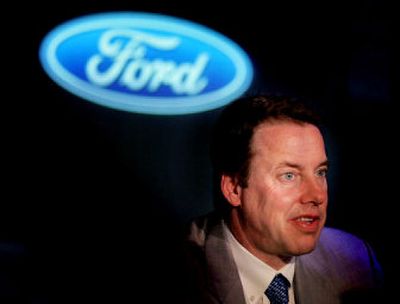Automakers look to D.C. for help

WASHINGTON – Troubled U.S. automakers and their allies on Capitol Hill are seeking billions of dollars in aid from the federal government ranging from health coverage for their workers to extra tax write-offs for themselves.
They’re also asking for one rhetorical favor: Please don’t call the requests a bailout.
“I don’t view it as a bailout,” Sen. Carl Levin, D-Mich., said.
“We’re not looking for a bailout,” agreed William Ford Jr., chairman and CEO of Ford Motor Co.
The “B” word has been taboo ever since Chrysler Corp., faced with impending insolvency, sought and narrowly won $1.5 billion in loan guarantees from Washington in 1979 and 1980. The company eventually borrowed $1.2 billion and repaid the loans in 1983, seven years earlier than was required.
Nonetheless, the notion of the American taxpayer saving a company with a large and quick fix has mostly gone out of style and not been repeated since, with the exception of loan guarantees to airlines after Sept. 11. Even though General Motors Corp. and its rival Ford Motor now face serious financial straits, both are studiously avoiding public condemnation by spreading their druthers widely among many types of government policies.
Taken together, however, the components of their wish list would cost tens of billions – far more than Chrysler ever dared to seek.
With pleadings that large, breaking the requests into smaller pieces makes a great deal of legislative sense, and industry and labor leaders hope that several relief packages could begin to move in Congress next year. The outlook is uncertain, especially given the size of the federal budget deficit, but auto industry representatives said they were optimistic that at least some of their proposals would succeed.
“The likelihood of some sort of grand solution probably isn’t there,” said Dennis Fitzgibbons, director of public policy in Washington for DaimlerChrysler AG, the company formed in 1998 when Germany’s Daimler-Benz merged with Chrysler. “But,” he added, “there are pieces that people could agree on.”
Many, many pieces. In a speech in Washington last month, William Ford urged the government to help domestic automakers by expanding subsidies for companies that make components for gasoline-fuel-cell hybrids and other fuel-efficient vehicles. He also asked for federal money to retrain workers and for tax breaks to help manufacturers outfit old plants with new equipment.
GM has its own elaborate list. It hopes that pension legislation that is wending its way through Congress will tread lightly on heavy manufacturers such as GM. The legislation would strengthen the federal backstop to private pension plans by raising corporate contributions to a fund. The company also seeks health legislation down the road that would unburden it of the huge cost of medical coverage that it now offers its 450,000 retirees and their spouses.
One proposal that’s being floated is for the government to provide catastrophic health care coverage. GM has pointed out that the most severely ill patients, the top 1 percent of health care users, account for 30 percent of health care costs. The industry also is interested in revising tort law as a way to alleviate health care costs.
U.S. carmakers also want to persuade the Bush administration to push harder to get the Japanese to raise the value of their currency. The manufacturers assert that Japanese cars sell for thousands of dollars less than they should in this country because the Japanese government unfairly intervenes in currency markets to artificially depress the yen. The Bush administration rejects claims that the Japanese government is manipulating exchange rates.
“We can compete with Toyota, but we can’t compete with Japan,” William Ford said.
In addition, the companies advocate tougher trade policies that would restrict the import of foreign cars into the United States where possible and would ease entry of U.S.-made cars into other countries. “We could sell plenty (of cars) in Japan if we were allowed to,” Sen. Levin said. “We need a president to go after the Japanese to tell them if they don’t reduce their barriers that they will find similar barriers to theirs” in the United States.
The car companies are working through several industry coalitions and major trade groups, such as the National Association of Manufacturers, to press their case on various issues. Not all parts of the proposals are likely to move at the same time, auto executives say, but they see an urgent need for at least some assistance efforts to move soon.